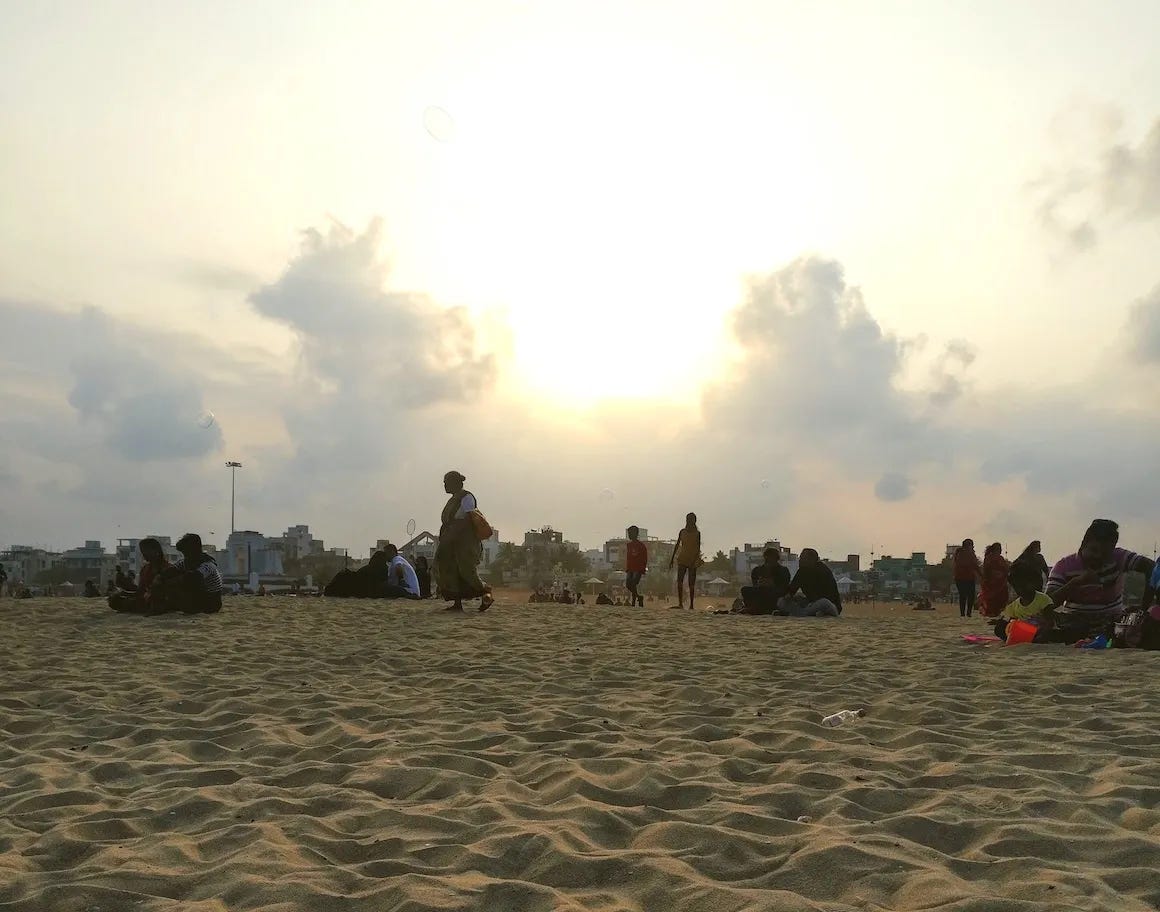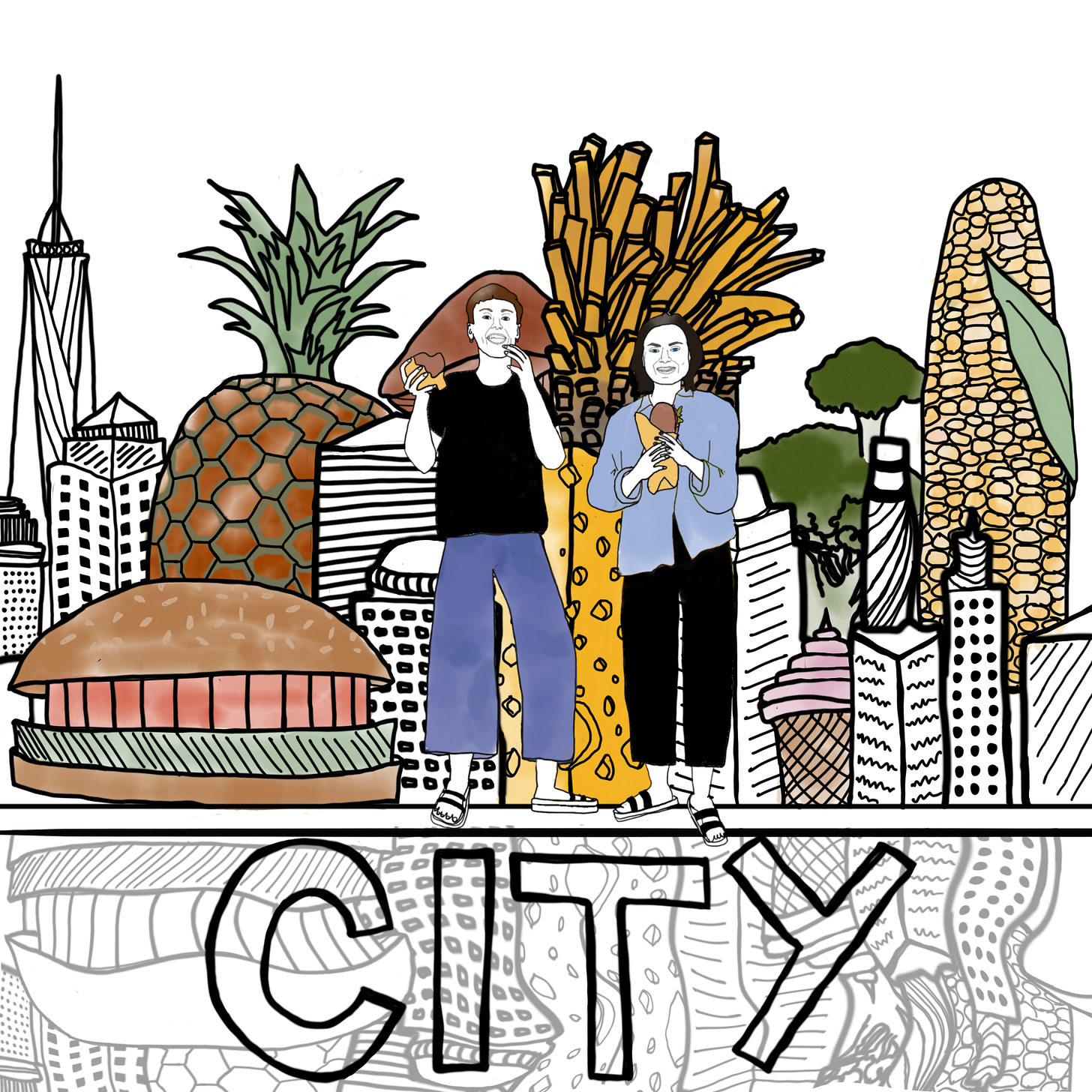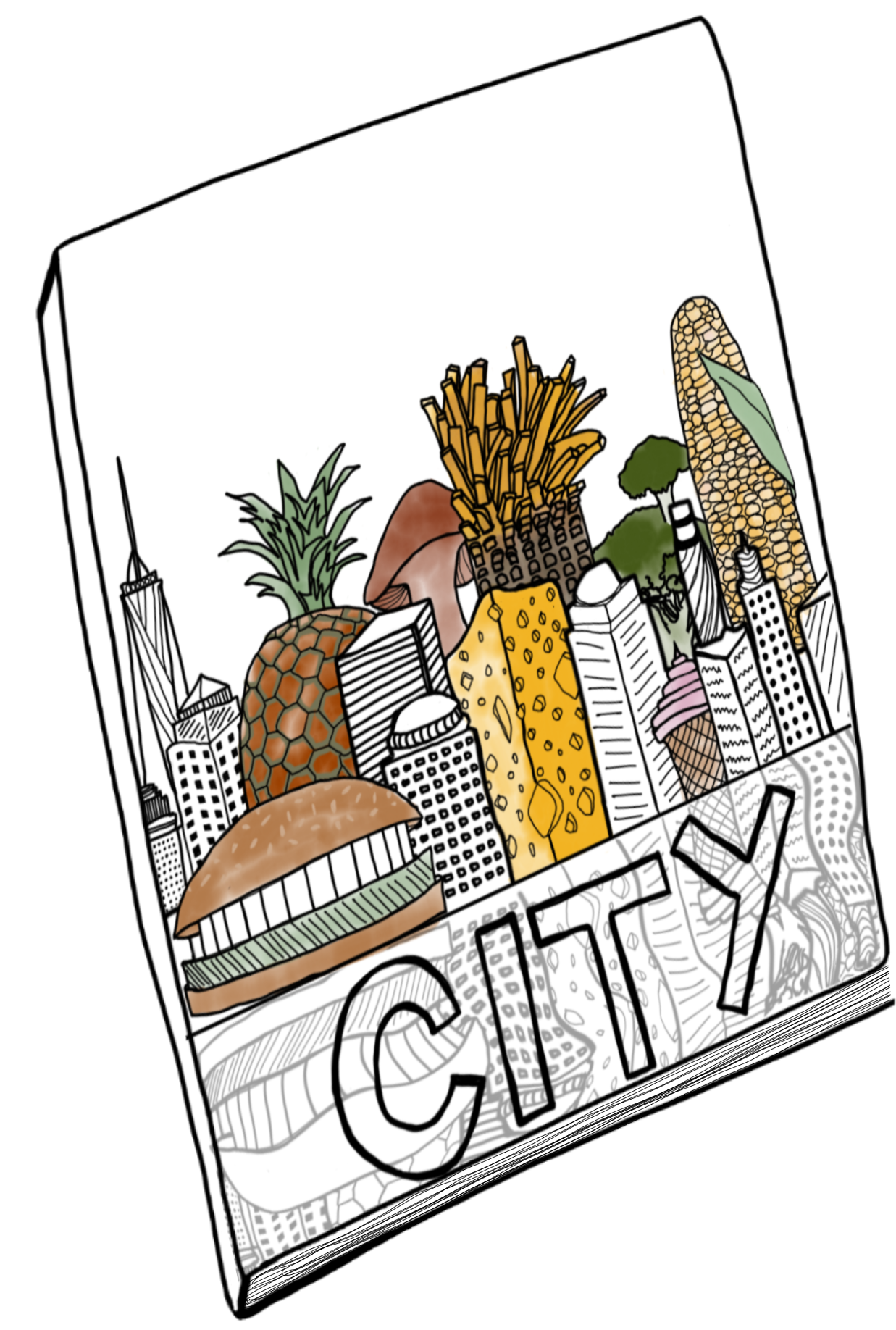Letter from the Editors: Our CITY issue
From Kolkata, Hong Kong, and London, to New York, Barcelona, Berlin, and Edinburgh
Our fifth issue, CITY, is here. In it, you’ll find stories about restaurants, homes, public space, migration, belonging, and more. These stories — brought to you by a lineup of skilled writers and thinkers from around the world — traverse the urban spaces of Kolkata, Hong Kong, London, New York, Barcelona, Berlin, and Edinburgh.
It’s hard not to start every Letter from the Editors with something about the strangeness of passing time. Perhaps looking back at an issue — work which has accompanied us through many months and involved the hard work of many people — leaves us feeling a little sentimental.
When we put out our call for pitches for CITY in the grey, gritty days of February, we were expecting the focus to fall heavily on topics relating to urban planning, urban food policy, sustainable supply chains, and (de)industrialization — urbanism in all its technicality. But by striving to choose a lineup of the kind of stories that you’re not likely to see published elsewhere, we ended up with an issue dominated by contributions that are far more personal, more tender. Together, the pieces in CITY bring us closer to understanding the complex linkages — material, symbolic, emotional — between food and cities, and how they contribute to feeding our bodies, our memories, and our ways of relating to one another.
Our CITY issue at a glance:
Respectable Lives and Transgressive Tastes | Sohel Sarkar
Bitter Oranges | Theodora Cadbury
The Shadow Mothers | Chelsea Lee
Home or Something Like It | Isabela Vera
CROSS POST: Parks and recreation (and picnics) | Apoorva Sripathi (from shelf offering)
Happy Family | Alison Wong
Food, gentrification, and the city | Isabela Vera with Alison Hope Alkon (podcast)
BONUS: A wee walk on the wild side | Steph Marsden
Food and movement
Given that 19% of the world’s foreign-born population is estimated to live in global or world cities and the powerful role food plays in connecting us to people and place, it is perhaps unsurprising that this issue deals a lot with the related themes of movement, migration, home, and belonging.



In “Bitter Oranges”, we accompany Theodora Cadbury as she navigates sourcing bitter oranges — an abundant but inaccessible and undesirable foodstuff — in her new city after a move from London to Barcelona. We were captivated by Theo’s vivid descriptions of the challenges and discomforts of being an outsider in a new urban space, as well as the magic moments that can begin to make you feel at home.
In conversation with Theo’s piece, co-founding editor Isabela Vera, who recently moved to Barcelona from Berlin, brings us “Home or Something Like It”. It is a bittersweet reflection on the many homes she’s had over the years and a meditation on the things we leave behind when we go looking for more. Like Theo, she portrays the importance of food in forging new relationships with people and place, in ripping up old roots and putting down new ones. While perhaps food’s centrality to this process is not unique to cities, it is unique in them, as both Theo and Isabela explain.
Further east, in Hong Kong, Chelsea Lee’s “The Shadow Mothers” also explores the loss of things left behind when someone moves to a city in a country far from home — but in an entirely different context and with entirely different stakes. Chelsea illuminates the complex dynamics of live-in domestic work and how it blurs the lines between labour and love, using powerful descriptions of her own experiences with her family’s domestic helper Jia. We learn that Jia moved to Hong Kong from the Philippines leaving behind her children and jeopardizing her relationship. Despite the sacrifices she and other domestic workers make, however, their work — like so much other gendered labour — is invisiblized in spite of its essential contributions to the city’s economy. Essential, too, is the care, or something akin to love, that they provide to their charges, as demonstrated by Chelsea’s continuing desire to cook Jia’s best recipe as an adult from her kitchen in London, and tender reflections on their relationship.
In Alison Wong’s “Happy Family” we see people of an older generation forging connections to a new (urban) place through food. In this piece, Alison tells the story of her grandparent’s Chinese restaurant in The Bronx, explaining the pivotal role they, and many other migrants, have played in shaping New York City into the place it is today. She uses her grandparents’ story to explore how gender and race have influenced labour dynamics in the United States since the mid-1800s. This includes the ways that cooking was seen as a “safe”(i.e., feminine) job for Chinese men in the face of white angst over labour competition, and how contemporary male chefs are credited with bringing “authentic” Chinese food to the American public. She also looks at how these dynamics played out at a micro-level within her own family, describing how her grandmother would shoo her out of the kitchen, hoping she would study instead of cook.
Food, power, and public space
No issue on cities would be complete without some discussion of public space — and of course, in our case, food and eating in public space. In this issue, Sohel Sarkar, Apoorva Sripathi, Alison Hope Alkon, and Steph Marsden, all raise questions about placemaking, or reimagining public places to promote urban vitality and human health, equity, justice, happiness, and well-being. They also make us think about the ways that power operates through food and public space in urban contexts.



For Sohel, this means using street food as a conduit for reclaiming women’s rights to the city. Sohel’s evocative essay, “Respectable Lives and Transgressive Tastes”, weaves together personal memories about street food from growing up in 1990s Calcutta with historical research and feminist and class critiques. She demonstrates how street food can be a vessel for existential anxieties over the mingling of genders and identities in the streets, and how these anxieties can be tucked into the language of health and sanitation as a proxy. She also explains how the oppression of women and the marginalization of vulnerable men intertwine over plates of street food since both women and street vendors are considered intruders in public spaces.
When we read the serendipitously published “Parks and recreation (and picnics)” by Apoorva (of MILK fame) on her Substack shelf offering, we were excited by the resonances with our issue. In it, Apoorva speaks of the history, meaning, and risk of the picnic, in cities where the right to access public space is under threat. She argues that a “hospitable city” depends on the reimagining of public places like parks and beaches as spaces of commensality. Again in her piece, we see how power works through restrictions on food consumption in public space: “In a conservative and congested country where intimacy is difficult and constantly policed, gatekeeping public spaces only reinforces moralities in the name of ‘culture’”, writes Apoorva on the Horticulture Department of Karnataka’s decision to dictate that couples cannot sit close together nor consume food in a popular park in Bengaluru. (P.S. If you don’t already subscribe to shelf offering, run, don’t walk to sign up!)

In the only podcast of this issue, “Food, gentrification, and the city”, Isabela talks with Alison Hope Alkon, Associate Professor of Teaching in the Community Studies Program in the Department of Sociology at UCSC and co-editor of A Recipe for Gentrification: Food, Power, and Resistance in the City. In their conversation, Alison importantly points out how food — urban agriculture, restaurants, and retail — can become a tool of displacement. Local food cultures are packaged up and sold to newcomers with deeper pockets, often in gendered ways, falling back on tropes of women of colour as loving, caring food producers. Even well-intended acts of placemaking, like urban agriculture, can end up damaging the livelihoods of vulnerable communities by driving up property values.
Finally, Steph’s piece, “A wee walk on the wild side” about urban foraging in Edinburgh, points to placemaking of a different kind — reimaging urban public space as a food source. Steph was a participant in The Wildbiome Project, a citizen-science experiment that involved foraging and eating wild foods for a month to assess the impact on health and the microbiome, and in this piece, she documents her experiences participating in this project and how it changed her relationships to her urban surroundings. Steph reflects on the sheer amount of labour required to sustain herself in this way, raising questions about privilege, time, and nourishment.
New perks for paid subscribers coming soon
We hope you enjoyed this issue’s journey through some of the world’s great cities as much as we did. We’d love to hear your thoughts about it: Did you see resonances between the pieces in this issue that we’ve missed in our letter? Let us know in the comments.
We couldn’t produce FFJ without the support of our paid subscribers. Paid subscribers can expect a few goodies to come their way before we wrap up CITY once and for all. We’re going to share CITY-related recipes for:
Sea Spaghetti
Ruby Foo’s Lobster Cantonese
Seville Orange Marmalade
To receive them, consider supporting FFJ through a monthly or annual subscription plan. Paid subscribers also get access to other bonus content like audio versions of most written stories, including those in CITY, usually read by the authors themselves. (You can find the links for these at the top of each post in Substack.) We’re also soon going to launch our paid-subscriber-only Whatsapp group, where we hope many interesting conversations will be had!
We’ve already started working on SEA and are excited to bring it to your inboxes in September.
We will be taking some holidays over the next weeks as we get ready to launch SEA, the Whatsapp group, and a new online merch store. We hope you will also take some time to rest, reconnect with yourself and your loved ones — and of course to eat well — as you enjoy the slow fading of the current season towards the next.






I love the wide range and fresh points of view in this collection of pieces. Bravo
Really grateful for your mention (and the kind compliments) of shelf offering! 🩷 The piece for MILK issue will forever remain as one of my favourites!!